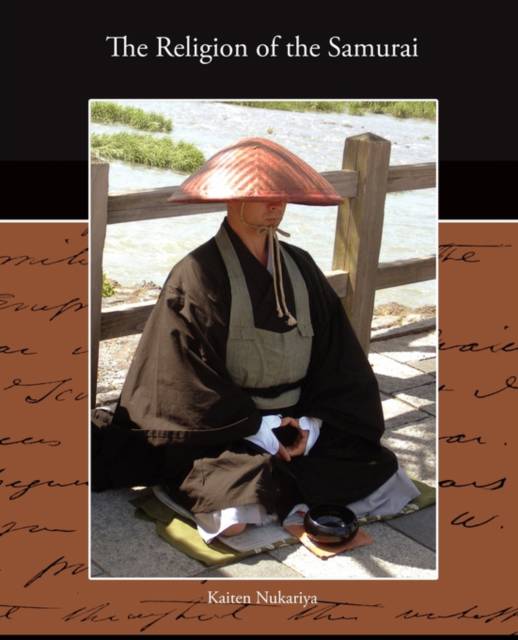
Door een staking bij bpost kan je online bestelling op dit moment iets langer onderweg zijn dan voorzien. Dringend iets nodig? Onze winkels ontvangen jou met open armen!
- Afhalen na 1 uur in een winkel met voorraad
- Gratis thuislevering in België vanaf € 30
- Ruim aanbod met 7 miljoen producten
Door een staking bij bpost kan je online bestelling op dit moment iets langer onderweg zijn dan voorzien. Dringend iets nodig? Onze winkels ontvangen jou met open armen!
- Afhalen na 1 uur in een winkel met voorraad
- Gratis thuislevering in België vanaf € 30
- Ruim aanbod met 7 miljoen producten
Zoeken
Omschrijving
The Religion of the Samurai is a study of Zen philosophy and discipline in China and Japan. Nukariya states the purpose of this work as follows, "The object of this little book is to show how the Mahayanistic view of life and of the world differs markedly from that of Hinayanism, which is generally taken as Buddhism by occidentals, to explain how the religion of Buddha has adapted itself to its environment in the Far East, and also to throw light on the existing state of the spiritual life of modern Japan. The Zen Sect is older than Buddhism itself. Even though it is very old the ideas in the Zen sect are very new and practiced by Buddhists today. The author goes on to say, "Buddhist denominations, like non-Buddhist religions, lay stress on scriptural authority; but Zen denounces it on the ground that words or characters can never adequately express religious truth, which can only be realized by mind; consequently it claims that the religious truth attained by Shakya Muni in his Enlightenment has been handed down neither by word of mouth nor by the letters of scriptures, but from teacher's mind to disciple's through the line of transmission until the present day."
Specificaties
Betrokkenen
- Auteur(s):
- Uitgeverij:
Inhoud
- Aantal bladzijden:
- 186
- Taal:
- Engels
Eigenschappen
- Productcode (EAN):
- 9781438525402
- Verschijningsdatum:
- 8/09/2009
- Uitvoering:
- Paperback
- Formaat:
- Trade paperback (VS)
- Afmetingen:
- 190 mm x 235 mm
- Gewicht:
- 331 g

Alleen bij Standaard Boekhandel
+ 56 punten op je klantenkaart van Standaard Boekhandel
Beoordelingen
We publiceren alleen reviews die voldoen aan de voorwaarden voor reviews. Bekijk onze voorwaarden voor reviews.











